What is a Diploma in Nautical Science?
The Diploma in Nautical Science is a one-year residential program that provides a diploma in nautical sciences upon completion to Merchant Navy aspirants.
During this course, students are trained in the fundamentals of marine safety, ship navigation, and seamanship. After completing this one-year program, students are eligible to take the Certificate of Competency (CoC) exam, issued by the Director General of Shipping and recognized internationally.
After completing this program, students are eligible to work as Deck Officers on board any commercial ship in the Merchant Navy.

Eligibility Criteria
To be eligible for a Diploma in Nautical Science program, you typically need to have completed Class 12th (or equivalent) with Physics, Chemistry, and Mathematics (PCM) as mandatory subjects.
Curriculum & Syllabus
The curriculum of a Diploma in Nautical Science program is designed to provide a strong foundation in theoretical knowledge and practical skills to work efficiently on board the Ship. Here’s a general overview of the subjects you can expect to cover:
Semester I
1. Applied Mathematics: This subject focuses on mathematical principles and techniques essential for solving problems related to navigation, stability, and other maritime operations.
2. Applied Science: Students learn fundamental concepts of physics and chemistry as they apply to maritime contexts, including material properties, buoyancy, and environmental science.
3. Ship Construction & Ship Stability: This course covers the principles of ship design and construction, as well as the factors affecting a ship’s stability and buoyancy, ensuring safe and efficient vessel operation.
4. Navigation I: An introduction to the basics of marine navigation, including chart reading, compass use, and the fundamental techniques for plotting a ship’s course.
5. Navigation II: Building on Navigation I, this subject delves deeper into advanced navigational methods, electronic navigation systems, and the use of modern navigational aids.
6. Cargo Handling, Stowage & Seamanship: This course teaches the techniques for safely loading, securing, and unloading cargo, as well as general seamanship skills necessary for maintaining a ship and managing its operations.
7. English & Human Factor: Focuses on developing effective communication skills in English and understanding human factor in maritime operations, emphasizing teamwork, leadership, and safety culture.
8. Workshop Theory & Practicals: Provides hands-on training in the use of tools and machinery, basic maintenance, and repair techniques, ensuring students can perform essential tasks aboard a ship.
Semester II
1. Navigation III: This advances the study of navigation with a focus on celestial navigation, allowing students to determine a ship’s position using the sun, moon, stars, and planets.
2. Navigation IV: Explores advanced navigation techniques and technologies, including the use of global positioning systems (GPS), radar, and other electronic navigational aids.
3. Cargo Handling, Stowage & Seamanship II: Continues from the first course, delving into advanced cargo handling and stowage techniques, including hazardous materials handling, as well as more complex seamanship skills.
4. Ship Construction & Stability: This subject further investigates ship design and construction principles, with an emphasis on maintaining stability under various loading conditions and during adverse weather.
5. MARPOL & Marine Engineering: Covers the International Convention for the Prevention of Pollution from Ships (MARPOL) regulations and introduces the basics of marine engineering, including engine operations and maintenance.
6. Emergencies, Maritime Communication & Commercial Shipping: Focuses on managing maritime emergencies, effective communication procedures during such situations, and an overview of commercial shipping operations and regulations.
7. Communicative English Lab: Provides practical training in English communication skills, emphasizing speaking, listening, and technical maritime vocabulary to ensure clear and effective communication at sea.
8. Workshop Practicals: Offers hands-on experience in advanced workshop techniques, including the use of specialized maritime tools and equipment for maintenance and repairs on board a ship.
Top Colleges Offering Diploma in Nautical Science in India
Choosing the right college is important for a successful career as a Merchant Navy officer. Here’s a list of some of the reputable colleges in India offering Diploma in Nautical Science programs
Career Opportunities After DNS
A Diploma in Nautical Science opens doors to a fulfilling career at sea. Here are some potential career paths:
1. Navigating Officer: Responsible for the safe navigation and operation of the ship, including chart plotting, maintaining the ship’s log, and overseeing bridge operations.
2. Deck Officer: Supervises the deck crew, manages cargo operations, ensures vessel safety and maintenance, and assists with navigation and watch duties.
3. Ship Surveyor: Inspects ships to ensure they meet safety and regulatory standards, evaluates the condition of the vessel, and verifies compliance with international maritime laws.
4. Port Manager: Oversees port operations, including the coordination of ship arrivals and departures, cargo handling, port maintenance, and ensuring efficient and safe port activities.
5. Marine Safety Inspector: Examines vessels for compliance with safety regulations, conducts safety drills and inspections, and ensures that safety equipment and procedures are up to standard.
Benefits of Diploma in Nautical Science Program
- High Earning Potential: Deck Officers typically earn competitive salaries, with potential for significant increases with experience and rank.
- Global Career Opportunities: The maritime industry operates worldwide, offering the chance to travel the globe and experience different cultures.
- Adventure and Challenge: A career at sea is anything but routine. You’ll face new challenges and experiences every day.
- Excellent Job Security: The demand for qualified Deck Officers is expected to remain strong in the coming years.
- Personal Growth and Development: The program instills valuable skills like leadership, teamwork, and problem-solving, which benefit you both professionally and personally.
FAQs
Is Diploma in Nautical Science difficult?
The difficulty of a Diploma in Nautical Science (DNS) can vary based on individual aptitude and interest in subjects like navigation, ship stability, and maritime law. It involves both theoretical knowledge and practical training, which some students may find challenging.
What is the entrance exam for Diploma in Nautical Science?
The primary entrance exam for the DNS course is the Indian Maritime University Common Entrance Test (IMU CET). This exam assesses candidates on subjects such as English, General Aptitude, Mathematics, Physics, and Chemistry.
Which is best, DNS or BSc?
Choosing between DNS and BSc depends on career goals. DNS is a quicker route to becoming a Deck Officer and entering the Merchant Navy, while a BSc in Nautical Science provides a more comprehensive academic foundation and might offer broader career opportunities in maritime fields.
Is DNS course easy?
The DNS course can be relatively easier for those with strong backgrounds in science and mathematics, and a genuine interest in maritime subjects. However, the rigorous practical training and examinations can be challenging.
Who is eligible for the DNS course?
Eligibility for the DNS course typically includes:
Completing 10+2 with Physics, Chemistry, and Mathematics (minimum aggregate usually around 60%).
Proficiency in English (usually at least 50% in English in 10th or 12th standard).
Meeting medical fitness standards as per the Directorate General of Shipping (DGS) guidelines.
Can I join the Merchant Navy without an IMU CET?
Joining the Merchant Navy typically requires passing the IMU CET for courses like DNS. However, some private institutes may offer alternative pathways, but these might not be as widely recognized or accredited.
Can 12th pass apply for IMU CET?
Yes, students who have passed their 12th standard exams with Physics, Chemistry, and Mathematics are eligible to apply
for the IMU CET.
What is DNS Diploma?
A Diploma in Nautical Science (DNS) is a one-year pre-sea training program that prepares students to become Deck Officers. The course includes both classroom-based learning and hands-on training on ships. Successful completion leads to further training and exams to become a certified Officer of the Watch.
Government Colleges for Diploma in Nautical Science
Some of the government colleges offering a Diploma in Nautical Science include:
Indian Maritime University (IMU) Campuses (such as Chennai, Mumbai, Kolkata, and Vishakhapatnam)
TS Chanakya, Navi Mumbai
Marine Engineering and Research Institute (MERI), Kolkata
National Maritime Academy (NMA), Chennai
